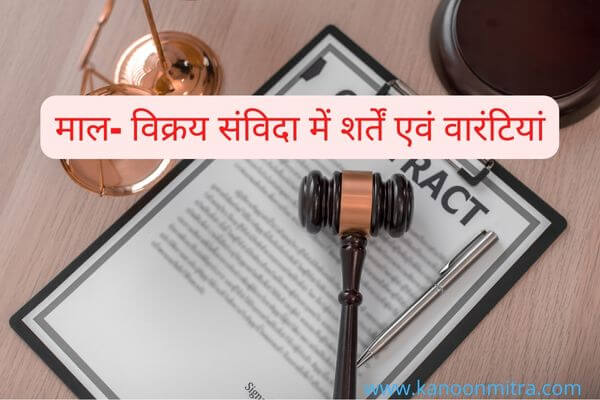धारा 5 भ्रष्टाचार निवारण अधिनियम — विशेष न्यायाधीश के अधिकार एवं प्रक्रिया.–
(1) विशेष न्यायाधीश किन्हीं अपराधों का संज्ञान उसे विचारण के लिए अभियुक्त की सुपुर्दगी के बिना कर सकता है और विचारण के लिए दंड प्रक्रिया संहिता, 1973 (1974 का 2) में मजिस्ट्रेट द्वारा वारंट मामलों के विचारण के लिए विनिर्दिष्ट प्रक्रिया अपनाएगा |
(2) विशेष न्यायाधीश अपराध में प्रत्यक्ष या अप्रत्यक्ष रूप से संबद्ध किसी व्यक्ति का साक्ष्य अभिप्राप्त करने की दृष्टि से उस व्यक्ति को इस शर्त पर क्षमादान कर सकता है कि यह अपराध के संबंध में और उसके किए जाने में चाहे कर्ता या दुश्खेरक के रूप में संबद्ध प्रत्येक अन्य व्यक्ति के संबंध में समस्त परिस्थितियों की जिनकी उसे जानकारी है पूर्ण और सत्यता प्रकट न कर दे और तब दंड प्रक्रिया संहिता, 1973 (1974 का 2) की धारा 308 की उपधारा (1) से (5) तक के प्रयोजन के लिए यह समझा जाएगा कि क्षमादान उस संहिता की धारा 307 के अधीन दिया गया है।
(3) उपधारा (1) की उपधारा (2) में किसी बात के होते हुए भी, दंड प्रक्रिया संहिता, 1973 (1974 का 2) के प्रावधान जहाँ तक यह इस अधिनियम से असंगत न हो विशेष न्यायाधीश की कार्यवाहियों पर लागू होंगे और इन प्रावधानों के प्रयोजन के लिए विशेष न्यायाधीश का न्यायालय सत्र न्यायालय समझा जाएगा और विशेष न्यायाधीश के समक्ष अभियोजन संचालित करने वाला व्यक्ति लोक अभियोजक समझा जाएगा।
(4) उपधारा (3) के उपबन्धों पर प्रतिकूल प्रभाव डाले बिना दंड प्रक्रिया संहिता, 1973 (1974 का 2) की धारा 326 और 475 के प्रावधान जहाँ तक संभव हो, विशेष न्यायाधीश के समक्ष की कार्यवाहियों पर लागू होंगे और इन प्रावधानों के प्रयोजन के लिए विशेष न्यायाधीश मजिस्ट्रेट समझा जाएगा।
(5) विशेष न्यायाधीश किसी दोषसिद्ध व्यक्ति की उस अपराध के लिए विधि द्वारा प्राधिकृत कोई भी दंडादेश पारित कर सकता है जिस अपराध के लिए वह व्यक्ति दोषसिद्ध हुआ है।
(6) इस अधिनियम के अधीन दंडनीय अपराध का विचारण करने वाला विशेष न्यायाधीश दंड विधि (संशोधन) अध्यादेश, 1944 (1944 का अध्यादेश 38 ) द्वारा जिला न्यायाधीश को प्रदत्त शक्तियों एवं कृत्यों का प्रयोग कर सकेगा।
Section 5 prevention of corruption act — Procedure and powers of special Judge —
(1) A special Judge may take cognizance of offences without the accused being committed to him for trial and, in trying the accused persons, shall follow the procedure prescribed by the Code of Criminal Procedure, 1973 (2 of 1974), for the trial of warrant cases by Magistrates.
(2) A special Judge may, with a view to obtaining the evidence of any person supposed to have been directly or indirectly concerned in, or privy to, an offence, tender a pardon to such person on condition of his making a full and true disclosure of the whole circumstances within his knowledge relating to the offence and to every other person concerned, whether as principal or abettor, in the commission thereof and any pardon so tendered shall, for the purposes of sub-sections (1) to (5) of section 308 of the Code of Criminal Procedure, 1973 (2 of 1974), be deemed to have been tendered under section 307 of that Code.
(3) Save as provided in sub-section (1) or sub-section (2), the provisions of the Code of Criminal Procedure, 1973 (2 of 1974), shall, so far as they are not inconsistent with this Act, apply to the proceedings before a special Judge; and for the purposes of the said provisions, the Court of the special Judge shall be deemed to be a Court of Session and the person conducting a prosecution before a special Judge shall be deemed to be a public prosecutor.
(4) In particular and without prejudice to the generality of the provisions contained in sub-section (3), the provisions of sections 326 and 475 of the Code of Criminal Procedure, 1973 (2 of 1974), shall, so far as may be, apply to the proceedings before a special Judge and for the purposes of the said provisions, a special Judge shall be deemed to be a Magistrate.
(5) A special Judge may pass upon any person convicted by him any sentence authorised by law for the punishment of the offence of which such person is convicted.
(6) A special Judge, while trying an offence punishable under this Act, shall exercise all the powers and functions exercisable by a District Judge under the Criminal Law Amendment Ordinance, 1944 (Ord. 38 of 1944).
धारा 5 भ्रष्टाचार निवारण अधिनियम धारा 5 भ्रष्टाचार निवारण अधिनियम धारा 5 भ्रष्टाचार निवारण अधिनियम



